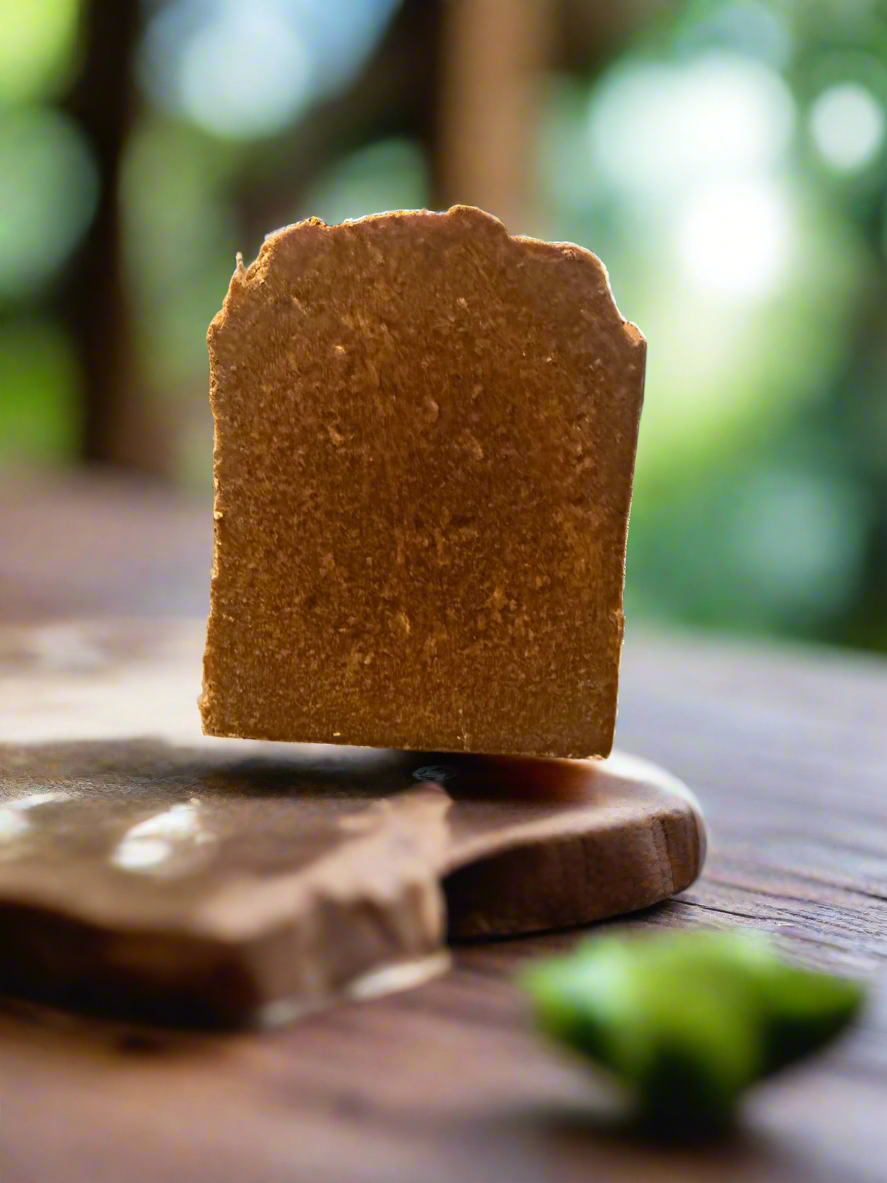Be Well Skin Care, LLC
Kojic Acid, Papaya and Turmeric Soap (For Dark Spots and Hyperpigmentation)
Kojic Acid, Papaya and Turmeric Soap (For Dark Spots and Hyperpigmentation)
Couldn't load pickup availability
This lather rich soap contains:
Palm Oil which helps to restore hydration in your skin and lock in moisture. Palm oil also is amazing for sensitive skin and can assist with skin conditions such as eczema and psoriasis. Palm Oil also had antibacterial properties that assist with removing impurities and dead skin cells.
Shea Butter has moisturizing, anti-inflammatory, anti-aging and antioxidant properties.
Coconut Oil assists in the reduction of inflammation. It also has moisturizing and anti-fungal properties.
Kojic Acid (Powder) is a gentle and natural derivate of fungi. Kojic acid has proven to be very effective in minimizing the production of tyrosinase which enzyme that causes hyperpigmentation and skin discoloration. Kojic Acid is known to brighten skin, lighten visible sun damage, lighten hyper-pigmentation, scarring, dark spots and age spots.
Lemon Essential Oil has purifying properties that can assist with inflammation and minimize harmful bacteria that may grow on the skin. Lemon essential oil contains high levels of Vitamin C, as well as lutein and carotene which have shown to lighten the skin.
Turmeric Powder has the ability to add a natural glow to your skin. It contains antioxidants that aim to reduce dark spots, blemishes, and hyperpigmentation. Turmeric also helps to reduce acne breakouts as it contains curcumin, a component that has antioxidant properties. Turmeric is also an anti-inflammatory which means that it can reduce skin inflammation and heal your skin. Turmeric is also known to assist with Atopic Dermatitis. Psoriasis, to reduce dark circles, slow down the signs of aging, and moisturize your skin.
Licorice Root can be a beneficial ingredient for addressing hyperpigmentation due to its ability to lighten skin and reduce the appearance of dark spots. It works by inhibiting the enzyme tyrosinase, which is crucial for melanin production, and by dispersing existing melanin. While it may take some time to see results, consistent use can lead to a brighter, more even skin tone. The active compound liquiritin in licorice inhibits the enzyme tyrosinase, which is essential for melanin production. Glabridin, another compound in licorice, helps disperse and remove excess melanin from the skin, reducing the appearance of dark spots and hyperpigmentation. Licorice also possesses anti-inflammatory properties, which can be helpful in calming the skin and reducing redness associated with hyperpigmentation. Licorice contains antioxidants like flavonoids, which can help protect the skin from damage caused by free radicals and further pigmentation.
Papaya Powder particularly the papain enzyme it contains, can be a helpful natural remedy for hyperpigmentation due to its exfoliating and skin-brightening properties. It works by gently exfoliating the skin, removing dead skin cells and promoting cell turnover, which can help fade dark spots and even out skin tone. Some research suggests that papain can inhibit tyrosinase, an enzyme involved in melanin production, which can help reduce the appearance of dark spots. Papaya also contains vitamin C, a powerful antioxidant that can help brighten skin and fade dark spots. Vitamin C in papaya can also stimulate collagen production, which is important for skin health and can help improve the overall appearance of the skin.
Sodium Hydroxide is the agent used to turn oils into soap. This agent is no longer present in the finished product after the process of saponification takes place, leaving you with a moisture rich, all-natural bar of soap.
This soap can be applied anywhere on the body but is best for non-sensitive areas.
This soap is safe to use on a daily basis.
Be Well.

-
Concerns?
While we do not anticipate any dissatisfaction with the product, we are unable to accept returns on skin care products. All concerns will be addressed on a case by case basis at bewellskincarellc@gmail.com. Thank you for your support!
